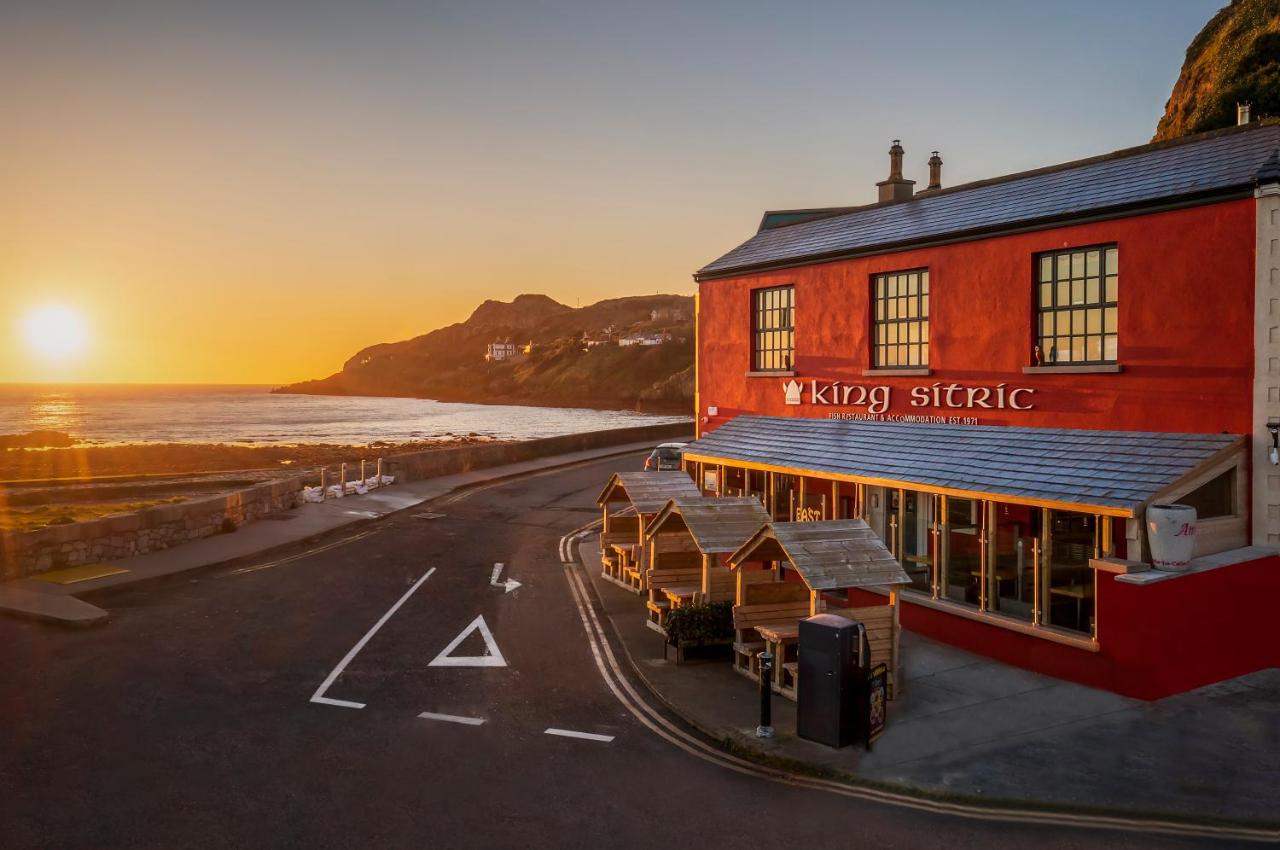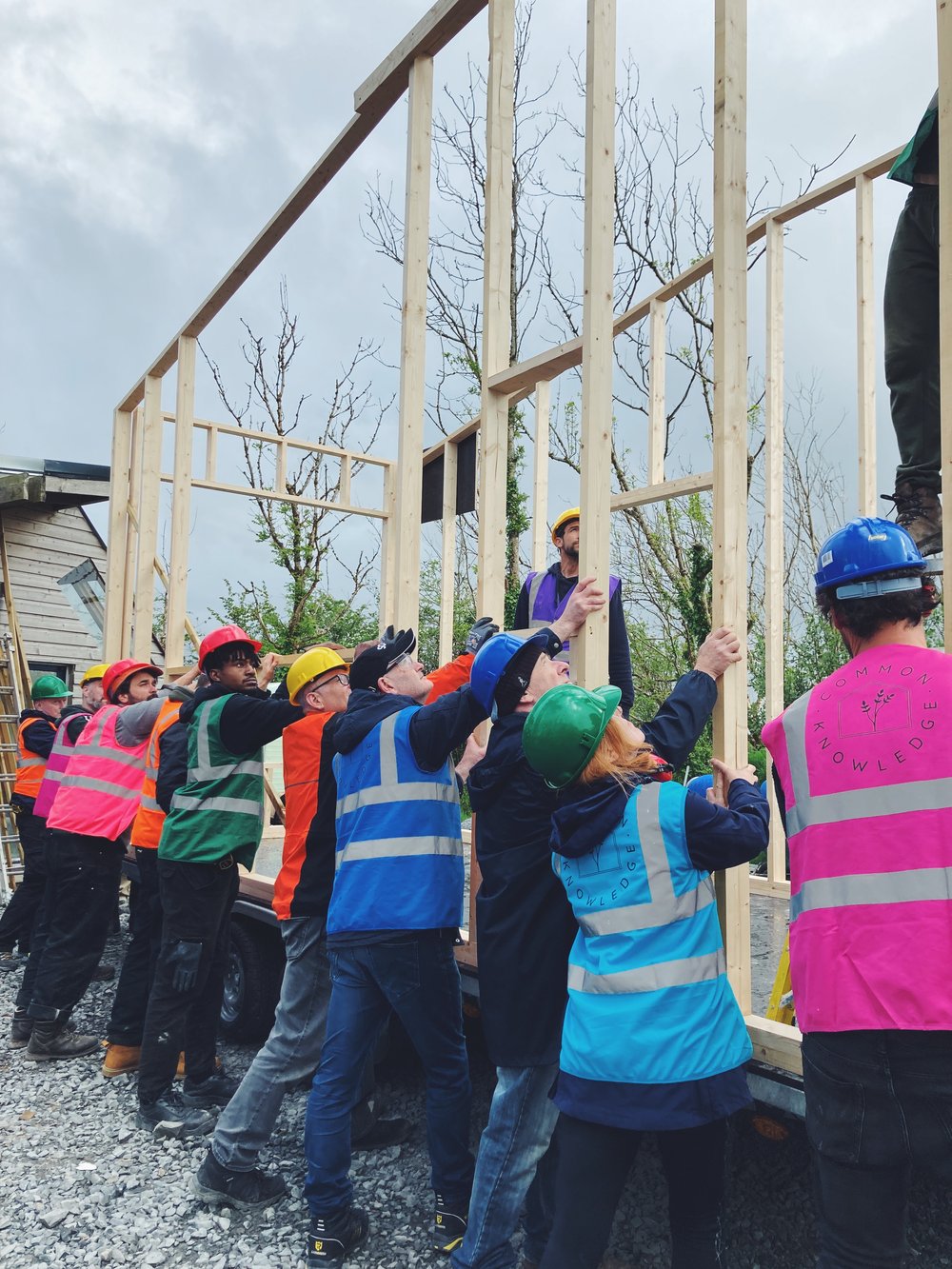The Irish Businesses Marrying Well-being and Sustainability
Images: Unsplash, HUH Clothing, GROUND Wellbeing, Grown Clothing, King Sitric Seafood, Common Knowledge
Words: Ellen Kenny
District and BMW share the same commitment to supporting innovation. With that in mind, we’ve teamed up to bring you features on Ireland’s most dynamic and creative game changers.
Innovation and success are constantly being redefined. More and more, organisations are being measured by not only the impact they have, but the way they go about it. With numerous crises coalescing at once, businesses and social enterprises are increasingly mindful about the impact their products have on the environment, on people’s pockets and how they can positively support their community. Having a mission is more important than ever and across Ireland, DIY startups are being led by ideas that are bigger than themselves.
Good and services we previously took for granted as fixed and unchangeable are now being transformed by Irish enterprises. What if you could trace your clothes to a brand new tree supporting our ecosystem? What if you were able to transform your home into a sustainable haven, or even built your home yourself?
These businesses are also bringing back practices of the past to help our present. Following mass globalisation contributing to our climate crisis, Irish businesses are bringing global mindsets back to a local level. These enterprises aren’t taking steps backwards by returning to older practices, but are moving to the top of the game by reimagining how we can find sustainability right on our doorstep.
Subsequently, innovation looks very different nowadays and an increasing number of enterprises are prioritising wellbeing, philanthropy and the environment like never before. From a state-of-the-art composter to face masks made from local soil, independent entrepreneurs are leading the way in Ireland to do business on their own terms.

If you are in search of quality and sustainability then look no further than Grown. Its products are made from 100 per cent organic cotton that have an extremely low impact on the environment. With a focus on garments ideal for the outdoors, Grown’s ethos is “From Nature to Nature”- sourcing environmentally friendly materials to get you out into the environment.
Grown avoids the fast fashion production line and designs smartly by creating clothing for either warm or cold weather, the ideal clothes for a country as changeable as Ireland. Instead of pumping out a new line of cheap clothes every month that will inevitably line next month’s bins, Grown creates capsule wardrobes that don’t lose its quality or style. You can never go wrong with a printed tee or sweatshirt, and there’s no better way to spend your money that investing in yourself and in the planet.

Grown Clothing is also the brains behind Grown Forest, Ireland’s first online tree planting platform. This platform offsets the production of their clothes line even further by planting a Native Irish tree in Irish soil for every garment they created, regardless of whether the garment was sold or not.
According to the minds behind the project, planting these trees not only stabilises our climate and generates cleaner air, but it also brings volunteers together. An exercise in well being for planet, according to the owners, creates well being in yourself, as well.
Grown Forest also has a drive to make use of trees already cut. They have a range of wooden picture frames made from upcycled floorboards, making the perfect present. Passionate to develop impact and drive change, Grown Forest arrived as the means needed to help and empower people to tackle climate change and emissions.


If you want to eat sustainably, you can head north to King Sitric Seafood Bar and Accommodation. The menu is made up of classic fish dishes like seared scallops and crab salad alongside dishes you aren’t likely to see on too many menus like roasted ray wing and black sole meunière. The restaurant focuses on seasonal, locally sourced foods so you know the food comes from right out of Dublin and has the smallest environmental impact possible.
What’s more is, you don’t need to feel guilty over waste if you can’t finish your meal. Following their reopening in April, King Sitric introduced a new composter, that their owner Dec calls “proper Digester”. It takes one hundred kilos of food waste per day and turns it into twenty-five kilos of compost overnight. They are likely the first restaurant in Dublin to install this. It’s an innovative and socially conscious inclusion that makes it one of the most sustainable restaurants in the country. The compost itself will be of excellent quality because fish shells and bones are naturally high in the kind of nutrients that soils lack after use.

For sea food by the sea, there’s no place better. If we follow their lead, and create a way to take this new compost and distribute it to the entire Irish farming community, it will, in turn, reduce the need for artificial fertilisers, which will mean we have cleaner water.

There are also sustainable businesses dedicated to teaching others on how to live sustainably. Irish business Common Knowledge is aware that more people than ever are considering the change they can make to minimise their impact on the planet. Common Knowledge is teaching key skills and resources and emphasising the importance of community through courses on DIY, upcycling and renovation projects within your home.
If you’re feeling ambitious, they also have lessons on how to build a sustainable home for yourself with their expertise and creativity. This social enterprise lets you get creative in your home and make use of all space possible from building, making and mending, to growing, cooking and energy efficiency. Sustainability can only thrive when it’s accessible; Common Knowledge wants the changes in your life to be generated and maintained by you, so you are making an empowered decision to help your planet.


Beyond teaching, Common Knowledge also organises community projects such as Tigín, a tiny home project that creates affordable, sustainable and happy homes. These tiny homes are carbon neutral, and built with the support of Margent Farm’s corrugated hemp cladding panels, cork insulation and natural rubber linoleum floor tiles. People can now buy one of these homes or learn the skills to build one themselves. Conscious of the housing crisis that is making life in Ireland even less sustainable, Common Knowledge finds solutions that benefit everyone.
Peigin Crowley

GROUND’s products help people going through menopause, those with Alzheimer’s, others with anxiety and generally anyone who needs a relaxing moment in their lives. They also aim to create a more holistic view of wellbeing, catering to each individual’s needs: “Wellbeing is just what makes you feel balanced, yours could be completely different to me. Sometimes it’s having the laundry folded and done and eating eggs in the morning.”
As well as looking at the health of their customers, GROUND also focuses on the health of the planet, sustainably sourcing all their essential oils “from the best harvests worldwide.” Peigin explains that “you’re being strategic to get products that are effective that work. You’re being very mindful of your carbon footprint.”

From sourcing the oils to delivering the product to the customer’s house, GROUND is as green as possible. Peigin explains GROUND’s rigorous process of choosing suppliers of the oils, requiring manufacturers to fill out forms guaranteeing sustainability, and finding shipping companies that reduce emissions as much as possible. This wasn’t a perfect process from the beginning – Peigin recalls that when GROUND first launched, their labels were so biodegradable that when any of the oil products actually made contact with the packaging, it began to dissolve. Peigin says GROUND returned to the drawing board in that instance, figuring out the smartest ways to be sustainable.
“I love that challenge and I think more and more people are interested to know if their products are sustainable. To me, more people are going the extra mile. So it’s a full circle economy. We all help each other. It’s for our planet. It’s collaborative, it’s generous. It’s a nice space to be in.”
Mark Donnelly

In 2021, Mark launched HUH Clothing, a startup focused on physical and mental comfort while normalising conversations about how we’re really feeling.
“I say ‘casual clothing, comfortable conversations’,” Mark tells District, “Ultimately we’re trying to make everyone turn everyone into a mental health advocate, by something like a t-shirt, a crewneck, a hoodie, a hot water bottle.”
HUH stands for “How’s Ur Head”, and all products from the brand have this logo with the intention of increasing awareness around mental health, with ten per cent of all sales going to local grassroot mental health charities around Ireland.

For Mark, the decision to make his mental health-themed business sustainable was an obvious one: “[Sustainability] really mirrors mental health and taking care of yourself. If you’re not practising good mental health and well-being practices and techniques on a daily basis, just like being a sustainable and ethical person within your business, it will all come crumbling down, whether you like it or not, so it really mirrors each other.”
Mark acknowledges the challenges of sustainable production for businesses: “If you’re using unsustainable, unethical and immoral practices, you’ll get nowhere. Yeah, I guess I could make more money and make more margin, but five years down the line, I wouldn’t really be able to live with that.”
Making mindful choices can appear costly and time consuming. However, once you know the right places to go and the right people to support, putting your best foot forward can be as sustainable for you and your bank account as it is for the environment. BMW are on that mission themselves to create dynamic solutions for a better future. Click here learn more about their goals and strategies, including their drive to build a circular economy within their business.
